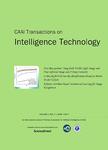Weakly supervised point cloud segmentation via deep morphological semantic information embedding
作者机构:School of AutomationNorthwestern Polytechnical UniversityXi'anChina Institute of Mechanical and Electrical EngineeringBeijingChina School of Electronic Information and CommunicationsHuazhong University of Science and TechnologyWuhanChina
出 版 物:《CAAI Transactions on Intelligence Technology》 (智能技术学报(英文))
年 卷 期:2024年第9卷第3期
页 面:695-708页
核心收录:
学科分类:12[管理学] 1201[管理学-管理科学与工程(可授管理学、工学学位)] 081104[工学-模式识别与智能系统] 081203[工学-计算机应用技术] 08[工学] 0835[工学-软件工程] 0811[工学-控制科学与工程] 0812[工学-计算机科学与技术(可授工学、理学学位)]
基 金:Key-Area Research and Development Program of Guangdong Province,Grant/Award Number:2021B0101200001 National Natural Science Foundation of China,Grant/Award Numbers:61876140,U20B2065,U21B2048 Open Research Projects of Zhejiang Lab,Grant/Award Number:2019KD0AD01/010
主 题:artificial intelligence computer vision deep learning
摘 要:Segmenting the semantic regions of point clouds is a crucial step for intelligent agents to understand 3D *** supervised point cloud segmentation is highly desirable because entirely labelling point clouds is highly time-consuming and *** the low-costing labelling of 3D point clouds,the scene-level label is one of the most effortless label ***,due to the limitation of classifier discriminative capability and the orderless and structurless nature of the point cloud data,existing scene-level method is hard to transfer the semantic information,which usually leads to the under-activated or over-activated *** this end,a local semantic embedding network is introduced to learn local structural patterns and semantic ***,the proposed network contains graph convolution-based dilation and erosion embedding modules to implement‘inside-out’and‘outside-in’semantic information dissemination ***,the proposed weakly supervised learning framework could achieve the mutual propagation of semantic information in the foreground and *** experiments on the widely used ScanNet benchmark demonstrate the superior capacity of the proposed approach when compared to the current alternatives and baseline models.



